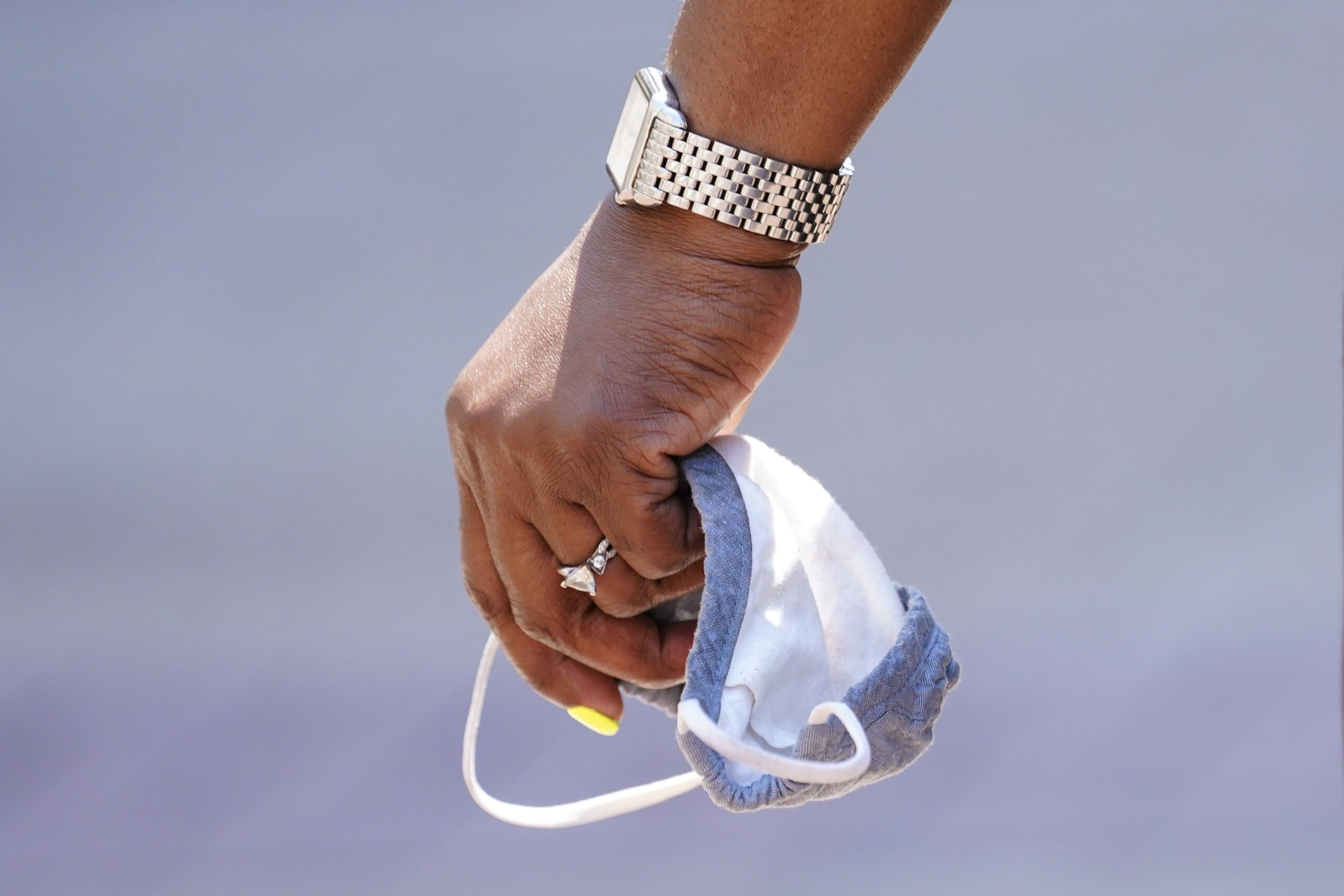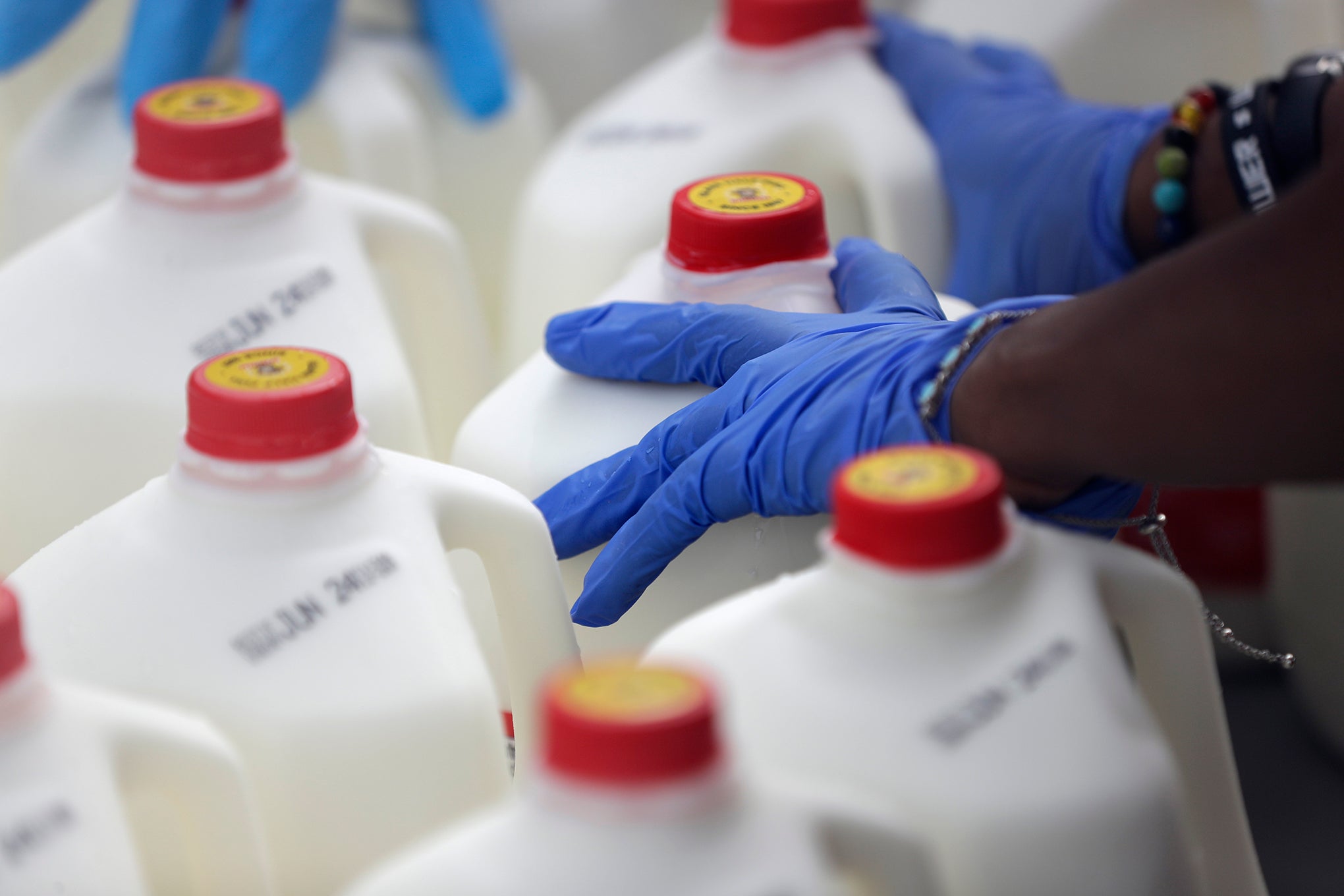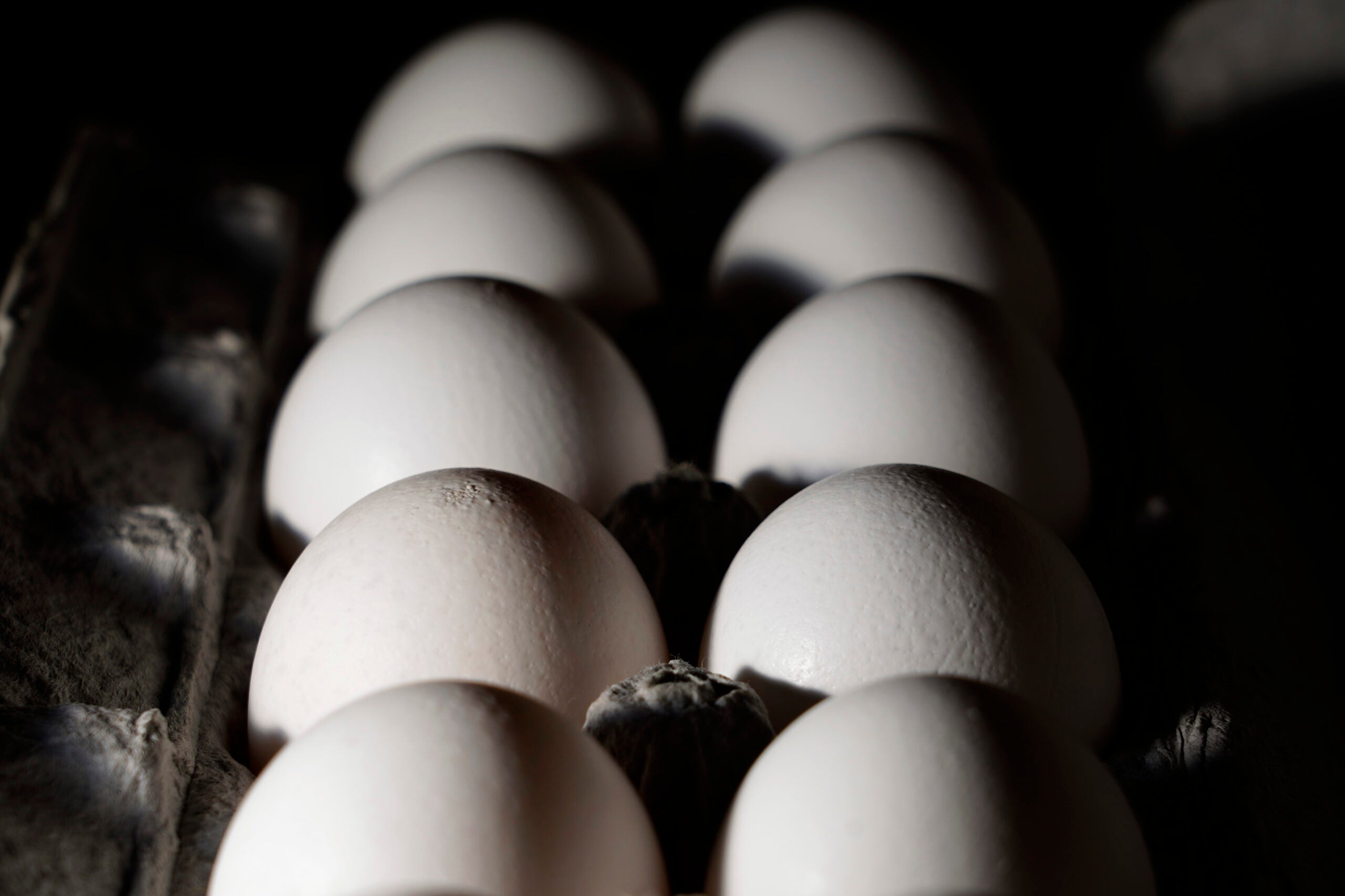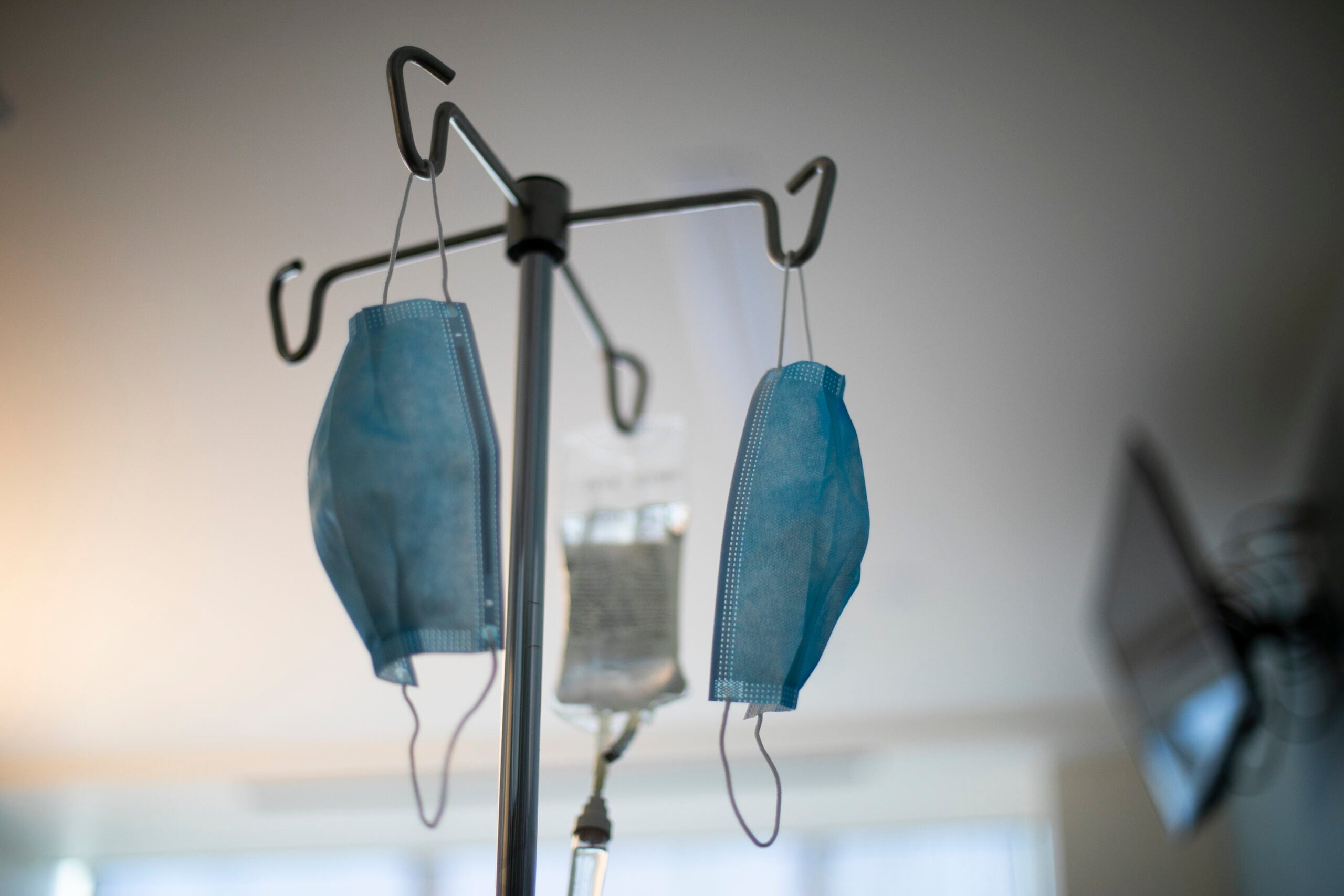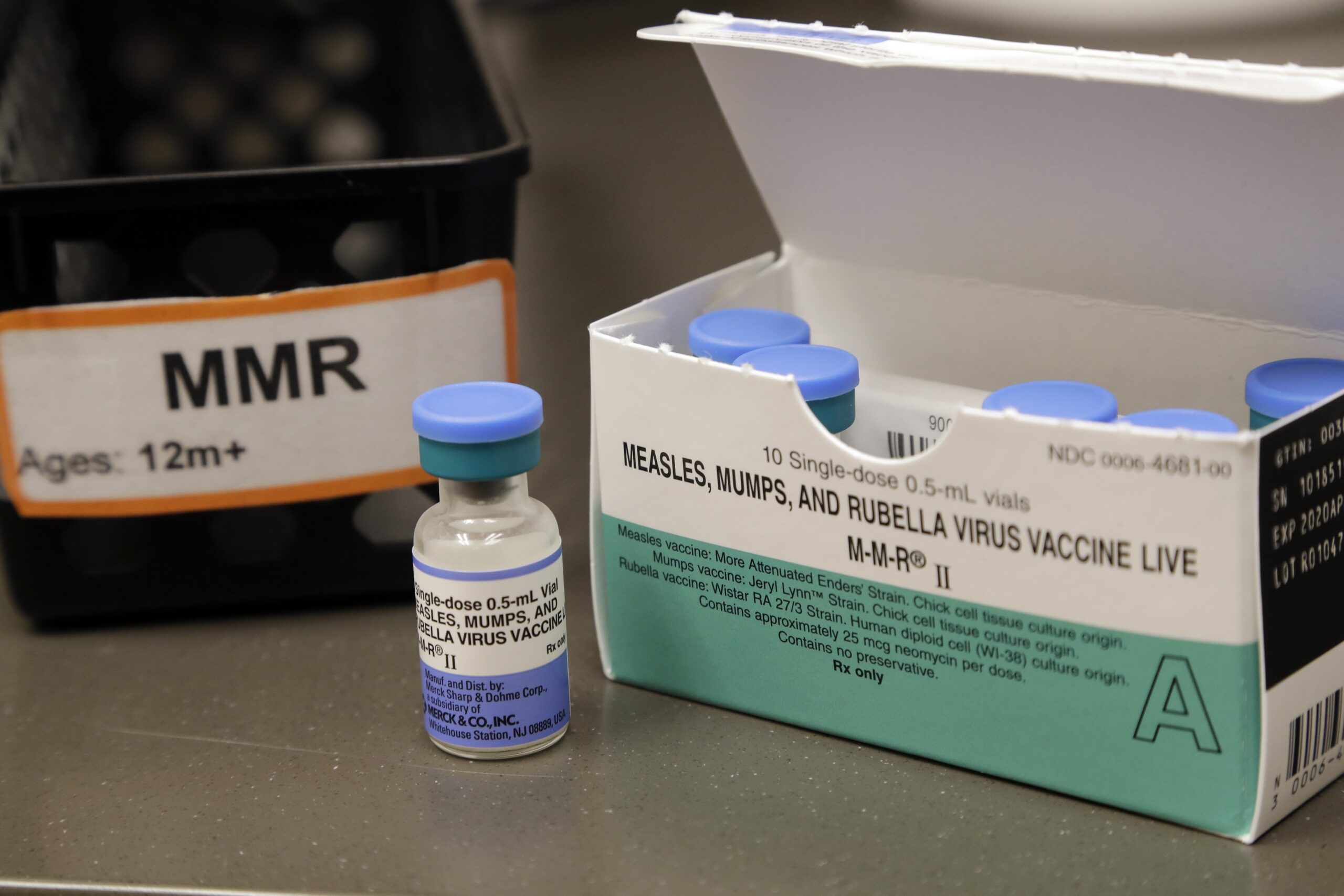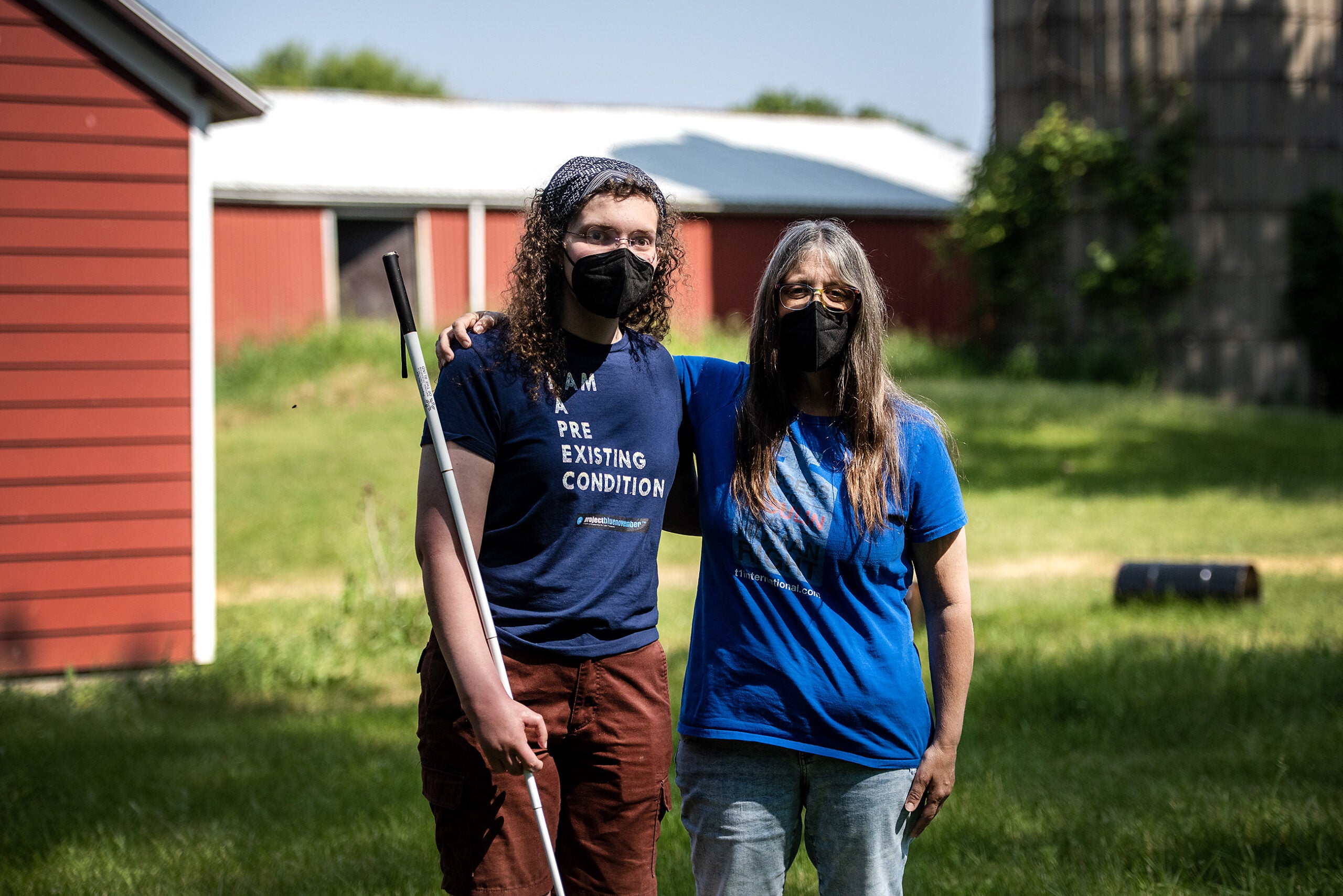A central Wisconsin meat shop is suing the Biden administration after the shop was penalized for failing to require its employees to wear masks.
In a complaint filed Thursday in federal court, Nolechek’s Meats of Thorp argued that a food-inspection arm of the U.S. Department of Agriculture exceeded its authority when it issued a mask requirement in August to businesses its inspectors enter as part of their work.
Nolechek’s, a family-owned company with nine employees, told USDA regulators that it wouldn’t comply with the requirement. The owners of the shop did this in part “out of respect to their employees’ individual discretion and autonomy to make their own health choices,” according to the complaint.
Stay informed on the latest news
Sign up for WPR’s email newsletter.
“We decided to respect our team members’ wishes and not require them to wear masks,” owner Lindsey Fox said in an interview with WPR. “The decision is left up to the individual, and we don’t feel it is our job as a business owner to police that.”
Without a mask requirement for employees, though, the USDA contended that its policies wouldn’t permit inspectors into the shop. That would mean revocation of Nolechek’s federal “Mark of Inspection” status, which permits the shop to sell its products wholesale. And that would threaten to wipe out about 25 percent of Nolechek’s revenue, Fox said.
Daniel Suhr, an attorney with the Liberty Justice Center, a Chicago-based conservative law firm representing Nolechek’s in the lawsuit, said the move amounts to “bullying” by the federal government.
Nolechek’s has complied with the order so it can retain the ability to wholesale its products, but “only to save their business reputation and revenues,” according to the complaint. Fox noted that the USDA’s threat wasn’t based on any finding related to the business’s food safety practices.
The risk of employees transmitting COVID-19 to customers on the meats or packaging materials is low. Guidance from the federal Centers for Disease Control and Prevention has long acknowledged that surface transmission of COVID-19 is rare, and most infections happen in person-to-person interactions.
“One of the things that the CDC and other federal agencies have said pretty consistently is that COVID doesn’t transmit through food products,” said Suhr. “The job of the Food Safety Inspection Service is to keep the meat products safe.”
A spokesperson for the USDA said the agency doesn’t comment on pending litigation.
The August USDA orders came at the same time the Biden administration announced a suite of new public health policies including the rollout of booster shots for COVID-19 vaccines and a vaccine requirement for workers at long-term care facilities. In November, the administration announced vaccine mandates for large companies and hospital workers, both of which have become the subject of legal battles. Suhr said recent court findings against the Biden administration might be a sign judges will also determine that the USDA policy was an overreach of federal power.
As the lawsuit was filed on Thursday, Wisconsin was experiencing the highest levels of new COVID-19 infections and hospitalizations seen in all of 2021. In the north-central region of the state, where Nolechek’s is located, there were 213 patients hospitalized on Thursday, according to the Wisconsin Hospital Association. There was one open intensive care unit bed in the region.
In the interview, Fox expressed skepticism about those data.
“When people talk about the hospitals being full and cases being up, personally, from me, I would question the testing and what is going on with the numbers,” Fox said. “And the people that are in the hospitals, are they vaccinated? Are they not vaccinated?”
According to state data, as of Nov. 15, unvaccinated people were more than 10 times more likely to be hospitalized with COVID-19 and 15 times more likely to die from the disease.
In a November interview with a Janesville-based radio station, Fox called vaccine mandates “terrifying” and said Nolechek’s owners “cannot ask our employees to do something that we ourselves don’t necessarily believe in or agree with.”
Wisconsin Public Radio, © Copyright 2025, Board of Regents of the University of Wisconsin System and Wisconsin Educational Communications Board.
